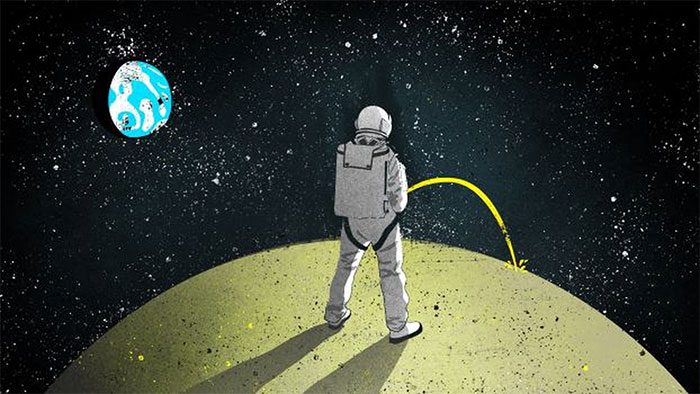Urinating on the Moon is not only dangerous for astronauts but also impacts future scientific research and exploration activities.
However, the space environment is vastly different from Earth, characterized by a vacuum and microgravity state, with no atmosphere to protect against cosmic rays and solar radiation. The microgravity condition leads to muscle atrophy, osteoporosis, and numerous other health issues.

During the day, temperatures can reach 100-200 degrees Celsius, causing urine to evaporate quickly and result in burns. (Illustrative image).
Astronauts need to be equipped with spacesuits and life support systems to protect their lives. If an astronaut urinates on the Moon, the water in the urine will evaporate rapidly in the vacuum environment, triggering a strong chemical reaction that produces gases or toxic substances, threatening health and affecting the lunar surface environment.
The extreme temperature fluctuations between day and night on the Moon also pose many dangers. During the day, temperatures can reach 100-200 degrees Celsius, leading to rapid evaporation of urine and potential burns; at night, temperatures can drop below -170 degrees Celsius, causing urine to freeze quickly, leading to frostbite and possibly requiring amputation to save a life.
Additionally, urinating on the Moon can affect the structure and composition of the surface, causing disruption in scientific research results and future exploration plans. These risks indicate that urinating on the Moon is not only dangerous for astronauts but also impacts subsequent scientific research and exploration activities.


















































